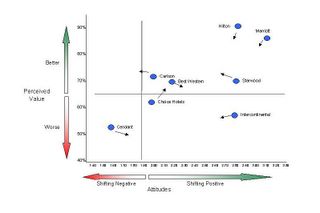Ipsos Insight Study Sees Internet Adoption Cooling
Online marketers must make it their priority to be highly informed of these data before planning their next global campaign. Ipsos continues to outdo other research firms with this tracking study of online adoption rates among developing countries. The latest findings are from interviews in 12 key global markets with more than 6,500 adults, including 3,462 active Internet users—reflect adoption possibilities of the Internet that few other technologies have shown in the past.
This study substantially raises The Data Dump Indicies of other relevant online consumer survey data and the associated DDIs of online properties. Marketers considering investments in metadata advertising campaigns with Google (DDI 176, +5.5), Yahoo (DDI 151, +6.0), MSN (DDI 128, +4) or other Web portals should consult this study and other related studies that pertain to specific global markets affecting the scope of their consumer targets.




